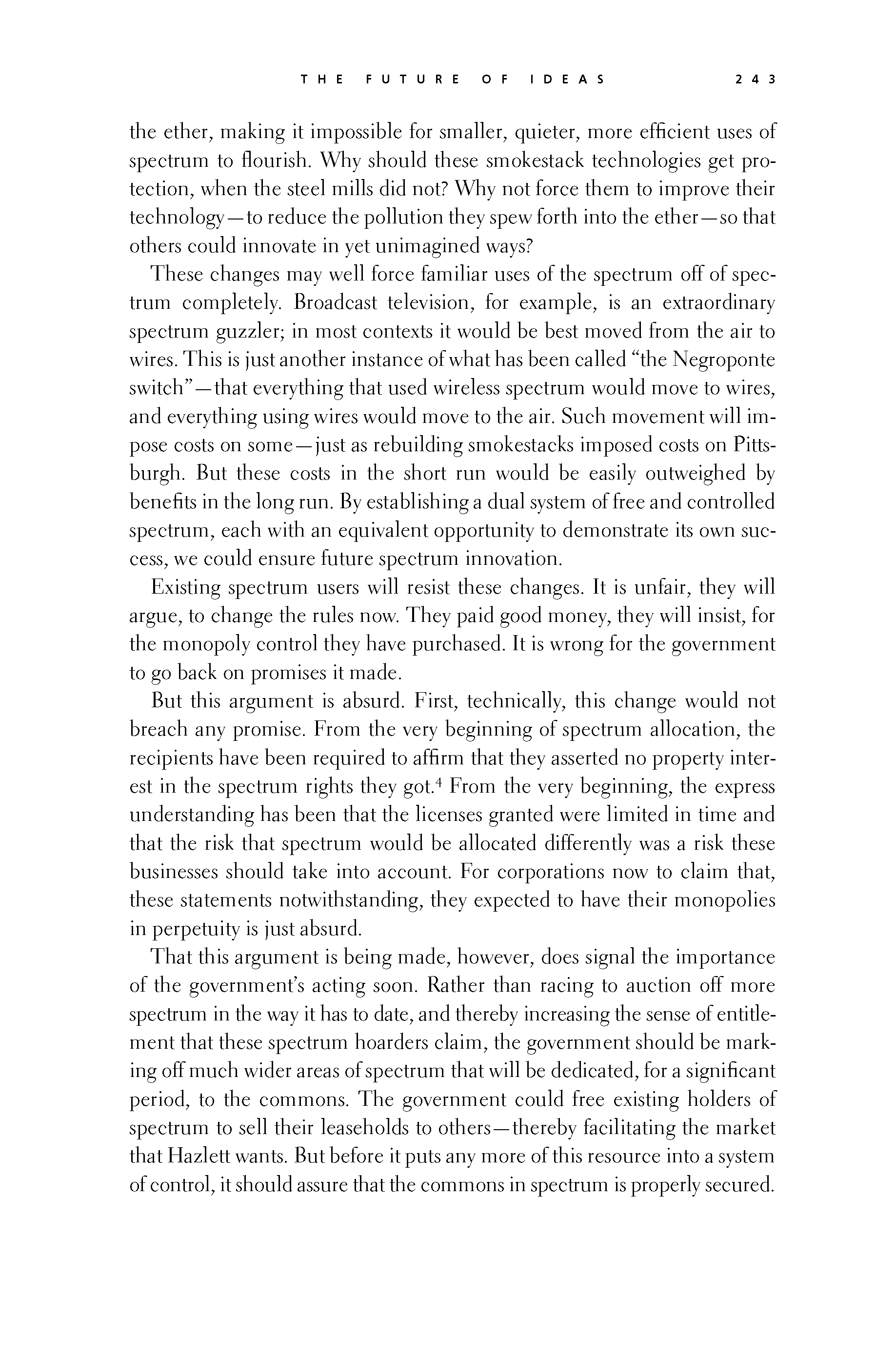 p242 _
-chap- _
toc-1 _
p243w _
toc-2 _
+chap+ _
p244
p242 _
-chap- _
toc-1 _
p243w _
toc-2 _
+chap+ _
p244
the ether, making it impossible for smaller, quieter, more efficient uses of
spectrum to flourish. Why should these smokestack technologies get pro-
tection, when the steel mills did not? Why not force them to improve their
technology -- to reduce the pollution they spew forth into the ether -- so that
others could innovate in yet unimagined ways?
These changes may well force familiar uses of the spectrum off of spec-
trum completely. Broadcast television, for example, is an extraordinary
spectrum guzzler; in most contexts it would be best moved from the air to
wires. This is just another instance of what has been called "the Negroponte
switch" -- that everything that used wireless spectrum would move to wires,
and everything using wires would move to the air. Such movement will im-
pose costs on some -- just as rebuilding smokestacks imposed costs on Pitts-
burgh. But these costs in the short run would be easily outweighed by
benefits in the long run. By establishing a dual system of free and controlled
spectrum, each with an equivalent opportunity to demonstrate its own suc-
cess, we could ensure future spectrum innovation.
Existing spectrum users will resist these changes. It is unfair, they will
argue, to change the rules now. They paid good money, they will insist, for
the monopoly control they have purchased. It is wrong for the government
to go back on promises it made.
But this argument is absurd. First, technically, this change would not
breach any promise. From the very beginning of spectrum allocation, the
recipients have been required to affirm that they asserted no property inter-
est in the spectrum rights they got.[14-4] From the very beginning, the express
understanding has been that the licenses granted were limited in time and
that the risk that spectrum would be allocated differently was a risk these
businesses should take into account. For corporations now to claim that,
these statements notwithstanding, they expected to have their monopolies
in perpetuity is just absurd.
That this argument is being made, however, does signal the importance
of the government's acting soon. Rather than racing to auction off more
spectrum in the way it has to date, and thereby increasing the sense of entitle-
ment that these spectrum hoarders claim, the government should be mark-
ing off much wider areas of spectrum that will be dedicated, for a significant
period, to the commons. The government could free existing holders of
spectrum to sell their leaseholds to others -- thereby facilitating the market
that Hazlett wants. But before it puts any more of this resource into a system
of control, it should assure that the commons in spectrum is properly secured.
[[243]]
p242 _
-chap- _
toc-1 _
p243w _
toc-2 _
+chap+ _
p244